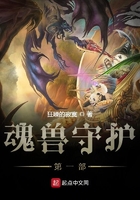T. Stewart, Thurlow Weed, Peter Cooper, Cyrus McCormick, Lucretia Mott, Bryant, Longfellow, and Emerson. Most old people could remember the running of the first railway train; people of middle age could remember the sending of the first telegraph message; and the children in the high schools remembered the laying of the first Atlantic Cable.
The grandfathers of 1876 were fond of telling how Webster opposed taking Texas and Oregon into the Union; how George Washington advised against including the Mississippi River;and how Monroe warned Congress that a country that reached from the Atlantic to the Middle West was "too extensive to be governed but by a despotic monarchy." They told how Abraham Lincoln, when he was postmaster of New Salem, used to carry the letters in his coon-skin cap and deliver them at sight; how in 1822the mails were carried on horseback and not in stages, so as to have the quickest possible service;and how the news of Madison's election was three weeks in reaching the people of Kentucky.
When the telegraph was mentioned, they told how in Revolutionary days the patriots used a system of signalling called "Washington's Tele-graph," consisting of a pole, a flag, a basket, and a barrel.
So, the young Republic was still within hearing distance of its childhood, in 1876. Both in sentiment and in methods of work it was living close to the log-cabin period. Many of the old slow ways survived, the ways that were fast enough in the days of the stage-coach and the tinder-box. There were seventy-seven thousand miles of railway, but poorly built and in short lengths. There were manufacturing industries that employed two million, four hundred thousand people, but every trade was broken up into a chaos of small competitive units, each at war with all the others. There were energy and enterprise in the highest degree, but not efficiency or organization. Little as we knew it, in 1876 we were mainly gathering together the plans and the raw materials for the building up of the modern business world, with its quick, tense life and its national structure of immense coordinated industries.
In 1876 the age of specialization and community of interest was in its dawn. The cobbler had given place to the elaborate factory, in which seventy men cooperated to make one shoe. The merchant who had hitherto lived over his store now ventured to have a home in the suburbs.
No man was any longer a self-sufficient Robinson Crusoe. He was a fraction, a single part of a social mechanism, who must necessarily keep in the closest touch with many others.
A new interdependent form of civilization was about to be developed, and the telephone arrived in the nick of time to make this new civilization workable and convenient. It was the unfolding of a new organ. Just as the eye had become the telescope, and the hand had become machinery, and the feet had become railways, so the voice became the telephone. It was a new ideal method of communication that had been made indispensable by new conditions. The prophecy of Carlyle had come true, when he said that "men cannot now be bound to men by brass collars;you will have to bind them by other far nobler and cunninger methods."Railways and steamships had begun this work of binding man to man by "nobler and cunninger methods." The telegraph and cable had gone still farther and put all civilized people within sight of each other, so that they could communicate by a sort of deaf and dumb alphabet. And then came the telephone, giving direct instantaneous communication and putting the people of each nation within hearing distance of each other. It was the completion of a long series of inventions. It was the keystone of the arch. It was the one last improvement that enabled interdependent nations to handle themselves and to hold together.
To make railways and steamboats carry letters was much, in the evolution of the means of communication. To make the electric wire carry signals was more, because of the instantaneous transmission of important news. But to make the electric wire carry speech was MOST, because it put all fellow-citizens face to face, and made both message and answer instantaneous.
The invention of the telephone taught the Genie of Electricity to do better than to carry mes-sages in the sign language of the dumb. It taught him to speak. As Emerson has finely said:
"We had letters to send. Couriers could not go fast enough, nor far enough; broke their wagons, foundered their horses; bad roads in Spring, snowdrifts in Winter, heat in Summer--could not get their horses out of a walk. But we found that the air and the earth were full of electricity, and always going our way, just the way we wanted to send. WOULD HE TAKE A MESSAGE, Just as lief as not; had nothing else to do; would carry it in no time."As to the exact value of the telephone to the United States in dollars and cents, no one can tell. One statistician has given us a total of three million dollars a day as the amount saved by using telephones. This sum may be far too high, or too low. It can be no more than a guess. The only adequate way to arrive at the value of the telephone is to consider the nation as a whole, to take it all in all as a going concern, and to note that such a nation would be absolutely impossible without its telephone service.
Some sort of a slower and lower grade republic we might have, with small industrial units, long hours of labor, lower wages, and clumsier ways.
The money loss would be enormous, but more serious still would be the loss in the QUALITY OFTHE NATIONAL LIFE. Inevitably, an untelephoned nation is less social, less unified, less progressive, and less efficient. It belongs to an inferior species.















